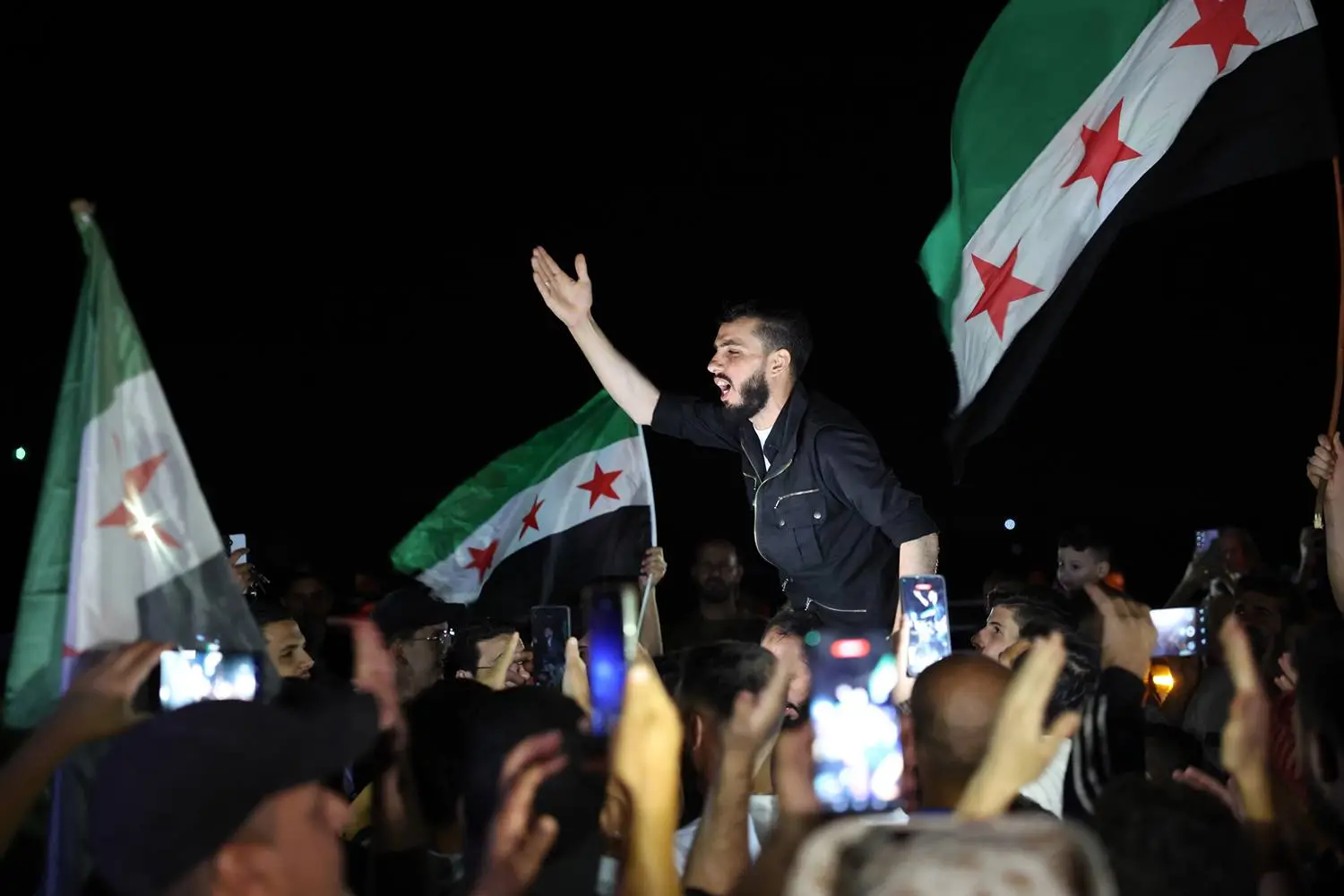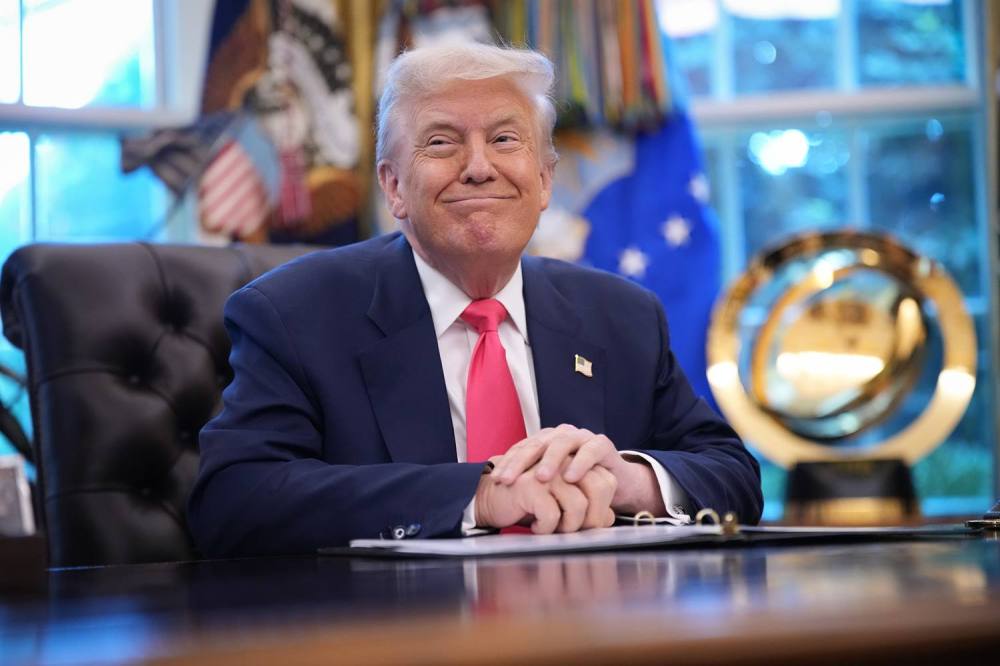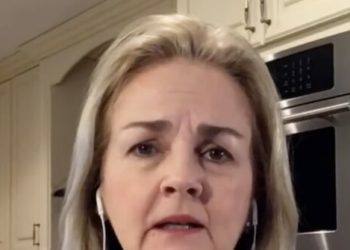Welcome back to Foreign Policy’s Situation Report, where we’re lamenting the end of summer but looking forward to the U.N. General Assembly’s high-level week in New York City next month, which means more SitRep pop-up editions from Turtle Bay. Reach out if you have any behind-the-scenes tidbits to share with us.
Alright, here’s what’s on tap for the day: U.S. President Donald Trump’s peace deal claims, Israeli preparations for a new Gaza offensive, and Trump picking a fight with Venezuela.
Trump-Branded Peace Deals
“I’ve ended six wars,” Trump told Ukrainian President Volodymyr Zelensky and several reporters in the White House on Monday. That became “I’ve solved seven wars” by the time that he dialed into Fox & Friends for an interview the next day. The White House did not respond to a request for clarification on which conflicts Trump was referring to.
But at least some of those deals—and Trump’s role in them—aren’t as clear-cut as the U.S. president makes them out to be as he unabashedly lobbies for the Nobel Peace Prize. And contrary to Trump’s claim that he “did not do any cease-fires” in his second term thus far, the president’s own posts about several of the peace deals that he claims to have negotiated have explicitly mentioned a cease-fire.
India and Pakistan
Trump’s claims of ending this year’s armed conflict between India and Pakistan began on May 10, when he posted on Truth Social that both countries had agreed to a “FULL AND IMMEDIATE CEASEFIRE” following “a long night of talks mediated by the United States.” Trump has continued to take credit for ending that conflict.
Pakistan enthusiastically co-signed that statement, even nominating Trump for the Nobel Peace Prize for what it called his “decisive diplomatic intervention and pivotal leadership” during the conflict.
But India has consistently downplayed and disputed Trump’s role in securing the cease-fire, repeatedly saying that an end to the conflict was negotiated directly with Pakistani officials.
Rwanda and the Democratic Republic of the Congo
The conflict between the two central African countries was the second one that Trump mentioned in his meeting with Zelensky.
The Trump administration did indeed play a role in securing a pause in hostilities between Rwanda and Congo, as well as in brokering a preliminary peace deal that was signed at the White House in late June, followed by a cease-fire agreement in Qatar in July.
But that cease-fire has not held, and peace talks aimed at securing a permanent agreement fell through this week after the Rwandan-backed M23 rebel group walked away from the negotiations.
Cambodia and Thailand
Border skirmishes between the two Southeast Asian countries, the latest flash point in their yearslong conflict, killed more than 40 people and displaced more than 300,000 others last month. The cease-fire, which began on July 28 but remains tenuous, was brokered primarily by Malaysia and its prime minister, Anwar Ibrahim, though the United States and China were both involved in talks leading up to it.
Trump posted on Truth Social two days before the cease-fire that the United States was “dealing on Trade with both Countries” but would not do so unless they stopped fighting. He then took credit for the cease-fire when it was agreed upon, writing: “I am pleased to announce that, after the involvement of President Donald J. Trump, both Countries have reached a CEASEFIRE and PEACE.”
Armenia and Azerbaijan
In the most recent and perhaps the most convincing of Trump’s mediation claims, Azerbaijani President Ilham Aliyev and Armenian Prime Minister Nikol Pashinyan signed a deal in Washington earlier this month to settle their long-running dispute over the so-called Zangezur corridor that both countries claim. That corridor will now be renamed the “Trump Route for International Peace and Prosperity,” with Washington also getting leasing rights for a U.S. company to develop it.
Israel-Iran
Trump announced an Israel-Iran cease-fire in late June after a 12-day conflict that also saw the United States strike key Iranian nuclear facilities. Though the cease-fire appeared shaky at first, it ultimately held. But the underlying causes of the conflict have not been resolved.
There are open questions about the extent of the damage to Iran’s nuclear program, despite Trump’s claims that it was obliterated. And it remains to be seen if , which the United States was in the midst of when Israel launched its operation against Iran, will ever resume.
Other ‘Peace Deals’
Trump has taken credit for making “peace” between Egypt and Ethiopia. The two countries were not at war, but there is conflict between them over a hydroelectric dam. The president claimed in June that he had helped resolve the dispute and that “there is peace, at least for now.” Trump did get involved in the diplomatic spat back during his first term, but it has not been settled.
The White House has also pointed to Serbia and Kosovo as another example of a conflict that Trump resolved. But these countries have not been in direct conflict since the late 1990s. Trump did help broker an economic normalization deal between the two countries in his first term, but their long-running tensions are far from resolved.
Let’s Get Personnel
The Trump administration’s slashing of the U.S. intelligence community further expanded on Wednesday, with Director of National Intelligence Tulsi Gabbard announcing that she would be firing nearly half of her office. That’s in addition to the 500 employees whom Gabbard said she has fired since taking the helm of the office, which accounted for nearly 30 percent of the staff.
It’s all part of a plan that Gabbard dubbed “ODNI 2.0,” which she said is meant to streamline the agency to support Trump’s priorities. “Over the last 20 years, ODNI has become bloated, radically expanded in size, and distracted by tasks and requirements that fall outside its mandate,” Gabbard said in the announcement. “ODNI and the IC [intelligence community] are plagued with unauthorized intelligence leaks, politicization, and weaponization of intelligence.”
The announcement came a day after Gabbard revoked the security clearances of 37 current and former officials, including several involved in the investigation into Russia’s interference in the 2016 U.S. presidential election.
On the Button
What should be high on your radar, if it isn’t already.
A new Gaza offensive. Israeli Prime Minister Benjamin Netanyahu signaled on Thursday that he will give final approval for a controversial military operation to take over Gaza City, which has been among the few areas of the enclave not under Israeli control. The move comes despite international outcry and opposition within Israel.
Israel conducted strikes on Gaza City overnight as part of the initial stages of the offensive. The operation is particularly concerning to the wider world amid the escalating humanitarian crisis in Gaza, and as Israel engages in talks with South Sudan to relocate Gazans there.
Netanyahu also said on Thursday that he had instructed immediate negotiations to begin for the release of remaining hostages in Gaza and an end to the war on terms acceptable to Israel—a perplexing announcement as Israel escalates the conflict with its Gaza City operation. This comes after Hamas agreed earlier this week to a proposal for a cease-fire from Arab mediators, which reportedly has similar terms to a deal previously embraced by Israel.
Meanwhile, there are also global concerns about Israel giving final approval for a settlement project that would divide the occupied West Bank in half. The plan is a major obstacle to the international community’s long-standing goal of a two-state solution. Netanyahu’s government vehemently opposes Palestinian statehood.
Zelensky debrief. The dust continues to settle on Trump’s flurry of diplomacy with Russian President Vladimir Putin, Ukrainian President Volodymyr Zelensky, and the seven European leaders who visited Washington in the past week, but Zelensky struck a positive note after his return home. Speaking to reporters in Kyiv on Wednesday, the Ukrainian president’s big takeaway was the U.S. commitment to participate in any postwar security guarantees for his country.
“I am very grateful to President Trump for this,” he said.
There is a long road to get to that point, however, and Russia showed its ever-present willingness to play spoilsport by insisting that it must also be part of those security guarantees—right before launching its biggest barrage of airstrikes on Ukraine in a fortnight. Putin has also reportedly reiterated his demands that Ukraine cede the entire Donbas region to Russia (more on that from John here), commit to no Western troops on its soil, and stop trying to join NATO.
Zelensky also said he was committed to a bilateral meeting with Putin but ruled out Moscow or the Hungarian capital, Budapest, as possible venues, instead suggesting countries in “neutral Europe,” such as Austria, Switzerland, or Turkey.
Ships off Venezuela. The Trump administration is moving ahead with its plans to send three U.S. Navy destroyers to the waters off Venezuela’s coast, according to multiple reports. It’s part of Trump’s broader plan to have the U.S. military combat Latin American drug cartels. The ships will reportedly be accompanied by 4,000 U.S. troops.
The Trump administration also doubled its reward earlier this month for the capture of Venezuelan President Nicolás Maduro—whom the United States has refused to recognize as the country’s legitimate leader since 2019—to as much as $50 million. Maduro responded by saying he had mobilized 4.5 million militiamen across Venezuela to thwart any potential U.S. threat.
Snapshot

Put on Your Radar
Monday, Aug. 25: Trump hosts South Korean President Lee Jae-myung in Washington, D.C.
Wednesday, Aug. 27: Additional 25 percent U.S. tariffs on India for its purchases of Russian oil go into effect.
By the Numbers
58: The percent of Americans who say all countries in the United Nations should recognize Palestine as a country, according to a new Reuters/Ipsos poll that surveyed 4,446 U.S. adults between Aug. 13 and Aug. 18. That figure was much higher among Democrats, at 78 percent, with only 41 percent of Republicans endorsing the recognition of a Palestinian state.
Quote of the Week
“I want to try and get to heaven if possible. I hear I’m not doing well. I hear I’m really at the bottom of the totem pole.” —Trump, in his Fox & Friends interview on Tuesday, explaining why he’s trying to end the war in Ukraine.
This Week’s Most Read
- Trump Has No Idea How to Do Diplomacy by Stephen M. Walt
- Key Takeaways From Trump’s Meeting With Zelensky by Rishi Iyengar
- Trump’s State Department Cuts Are a Self-Inflicted Wound by John Dinkelman
Whiskey Tango Foxtrot
We usually keep our newsletter focused on foreign-policy news, but we’ll make an exception for this wild story about an aide to New York City Mayor Eric Adams’s reelection campaign reportedly handing a local reporter a red envelope full of cash stuffed inside an empty bag of potato chips. A lawyer for the aide insists it was not an attempted bribe, and the aide has apologized, calling it “a mistake.” She has been suspended from further work on the campaign.
The post How Many Peace Deals Has Trump Actually Brokered? appeared first on Foreign Policy.




